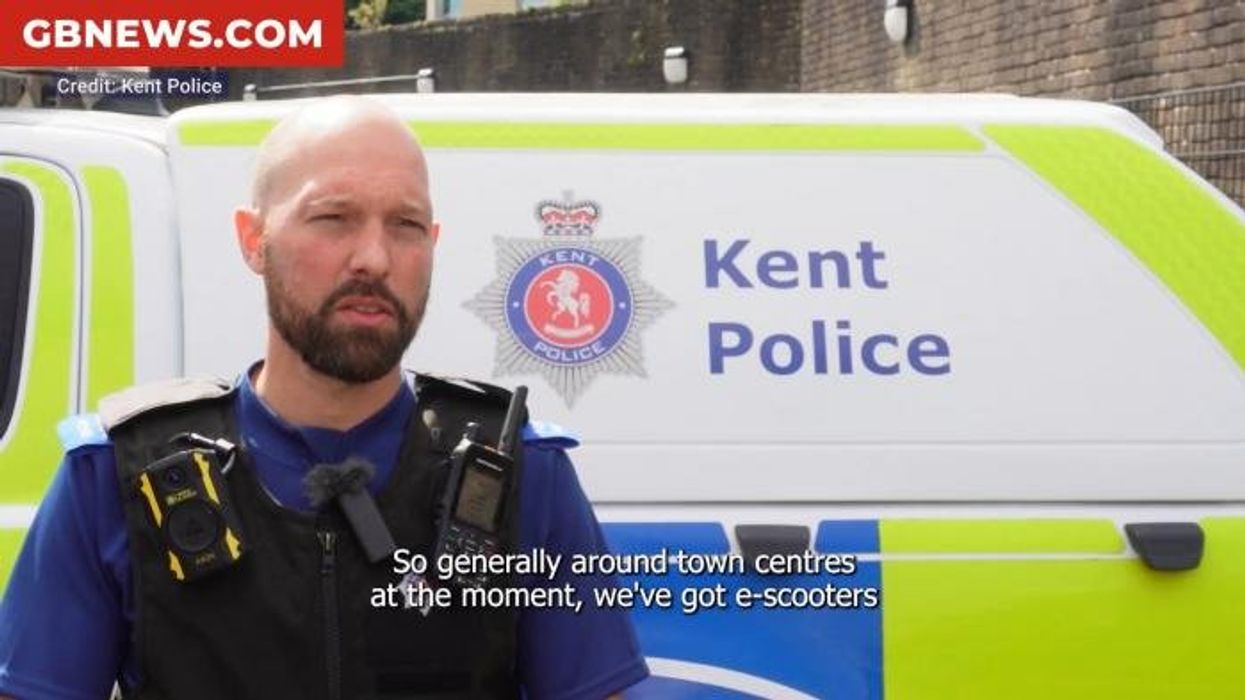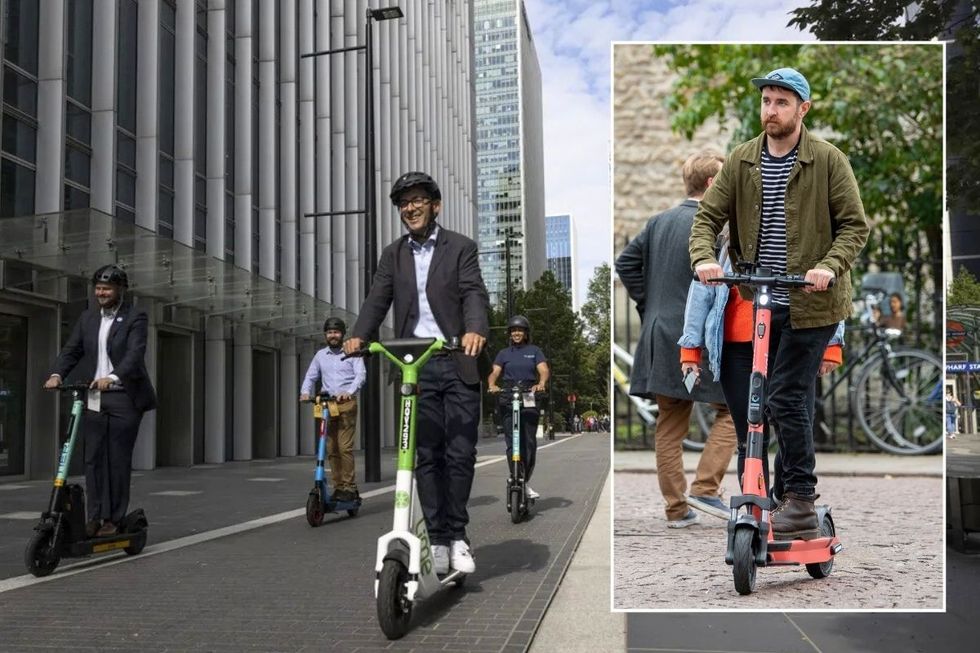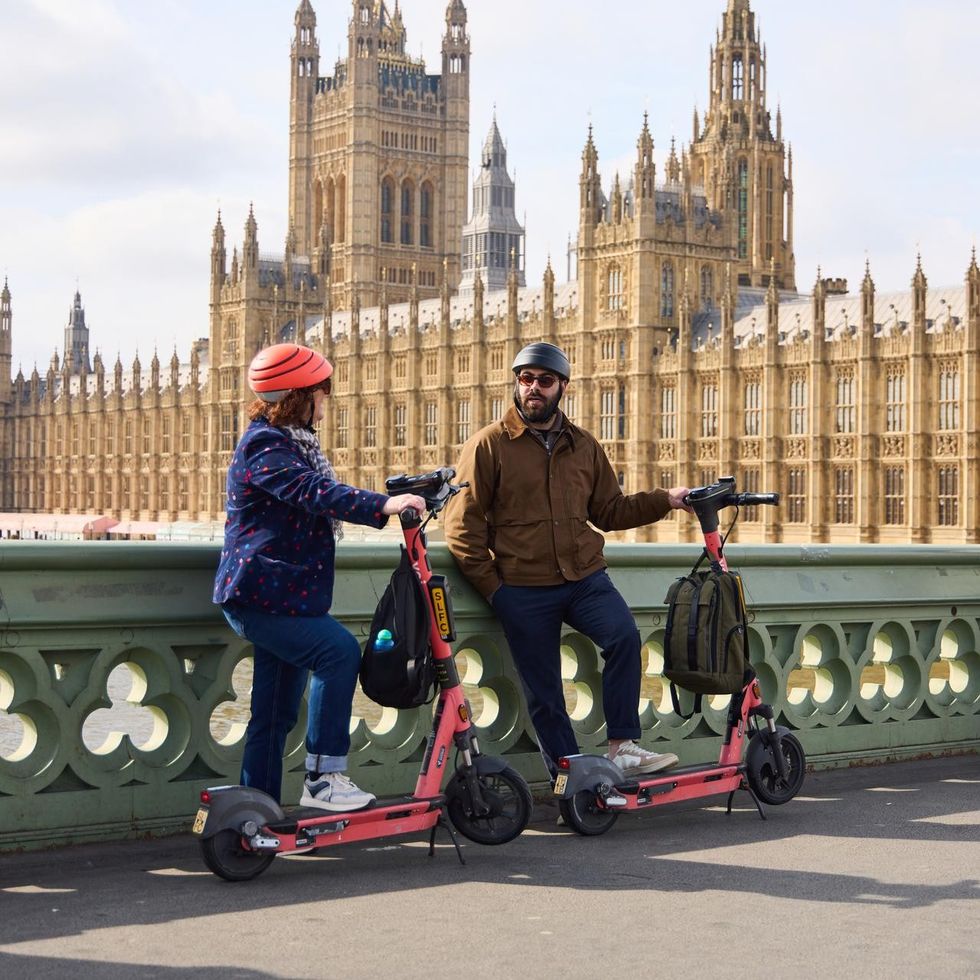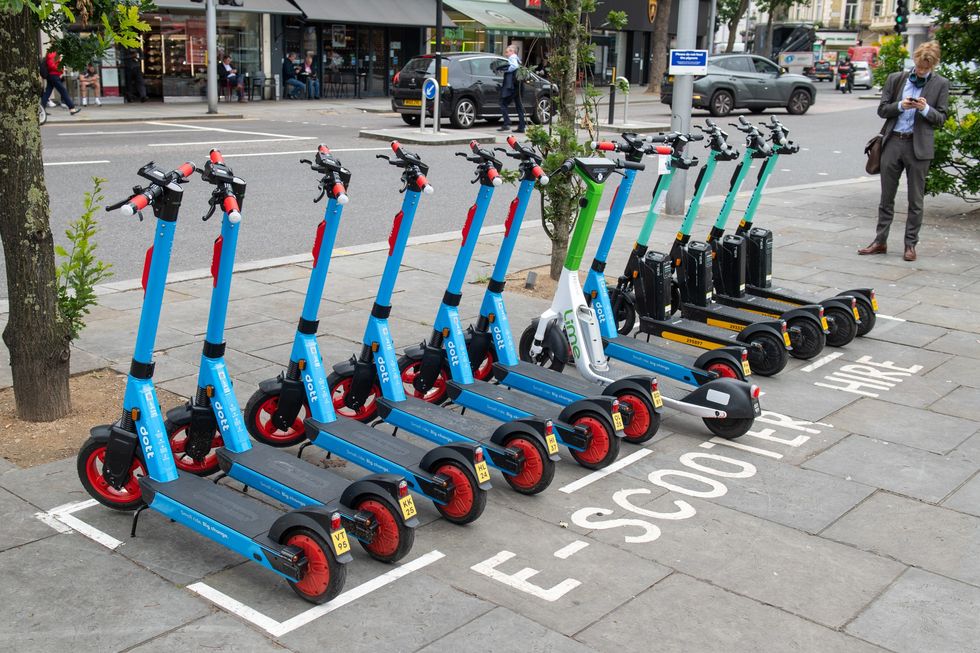Electric scooter rules to be 'top priority' for Labour as fatalities soar - 'Fast, silent, unpredictable'

WATCH: Kent Police discuss tackling anti-social e-scooter riding in Ashford
|KENT POLICE

Reports revealed roughly 1,400 were killed or seriously injured due to e-scooters on UK roads
Don't Miss
Most Read
Latest
Labour has been urged to introduce sweeping changes to a popular vehicle after reports found growing safety risks on UK roads.
It comes after research revealed that e-scooter incidents peaked last year, with almost 1,400 people killed or seriously injured by the electric vehicles.
This included one pedestrian who was killed, five riders, and 59 pedestrians seriously injured due to crashes with the fast vehicles.
An additional 158 Britons suffered minor injuries in collisions with the electric scooters. This was followed by cyclists (47 injured), car occupants (12 injured) and motorcyclists (seven injured).
TRENDING
Stories
Videos
Your Say
The Department for Transport research also found that 366 e-scooter users were seriously injured, while 725 suffered minor injuries last year.
This equates to nearly 1,400 people being killed or injured in e-scooter crashes last year, marking an increase from 1,387 in 2023.
With the growing number of e-scooter accidents, a leading charity for blind people has slammed the electric vehicles.
The Royal National Institute of Blind People (RNIB) policy lead Erik Matthies said: "E-scooters are fast, silent and unpredictable, often ridden on pavements and in other pedestrian areas.

Reports found that nearly 1,400 people were killed or injured in e-scooter crashes last year
| GETTY/PA"Even if a blind or partially sighted pedestrian hasn't yet had a collision or near-miss with an e-scooter, their increased risk can lead them to limit their walking journeys."
Pedestrians have become more at risk of e-scooter crashes due to many being used on the pavements when compared to any other road user, excluding vehicles.
In the UK, e-scooters can only be used in trial areas or on private property, with any found on public streets at risk of being seized by police.
Research by the RNIB found that 77 per cent of respondents felt the behaviour of e-scooter riders made them feel unsafe.

Experts have called for more to be done to crack down on the road fatalities due to e-scooters
| TFLLATEST DEVELOPMENTS:
Legal trials of rental e-scooters on roads have been ongoing across England since July 2020, with Transport Secretary Heidi Alexander announcing plans to extend them again until 2028.
While scooters offer riders an easier and greener way to get around, a study commissioned in December 2022 found a spike in anti-social behaviour across trial areas. In response to concerns, the Government announced plans to toughen up regulations around e-scooters.
This included potentially introducing a requirement for riders to pass a test as well as obtain insurance before being able to use the scooters.
Meanwhile, manufacturers could also be forced to limit the speed of their vehicles, lowering it from the current 15.5mph limit.
 E-scooters can only be used on public roads in trial areas | PA
E-scooters can only be used on public roads in trial areas | PASteve Gooding, director of motoring research charity the RAC Foundation, said: "As with all new developments in transport, we need to be mindful of the advantages they offer but also the risks they can pose, particularly from irresponsible use."
He warned that even the name of the devices "creates the impression that these vehicles are essentially toys, when the fact is they are motor vehicles that need to be approached and used with care".
In response, a Department for Transport spokesperson said: "Road safety is a top priority. Every death on our roads is a tragedy, and our thoughts are with everyone who has lost a loved one in this way.
"The use of private e-scooters is illegal in any public space. Riding rental scooters on the pavement is also illegal, and local authorities should have a plan in place to tackle such behaviour."










